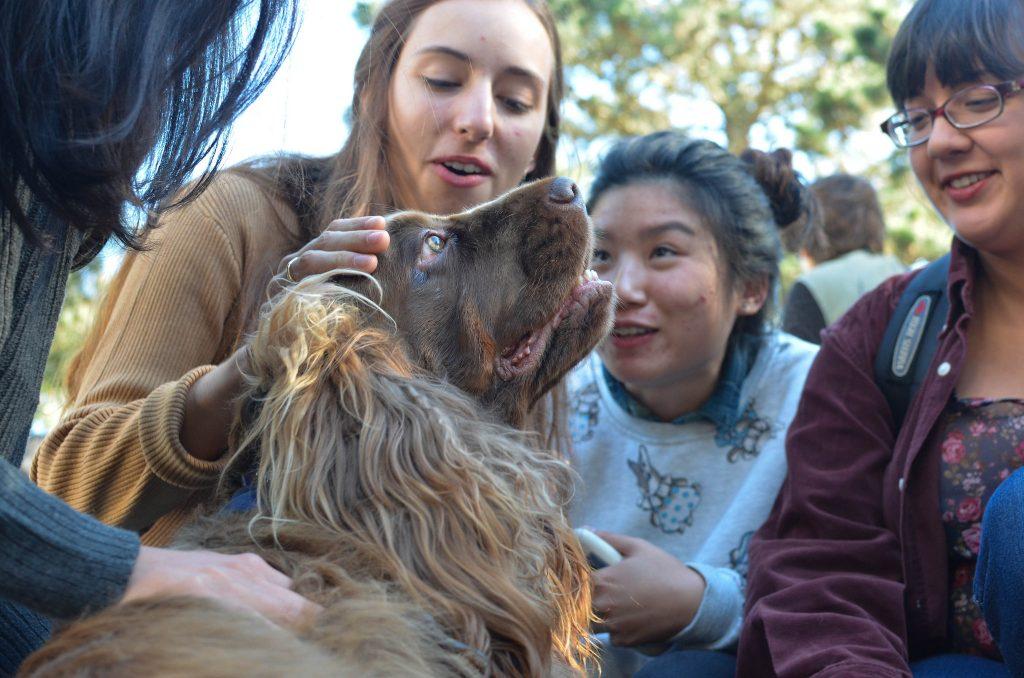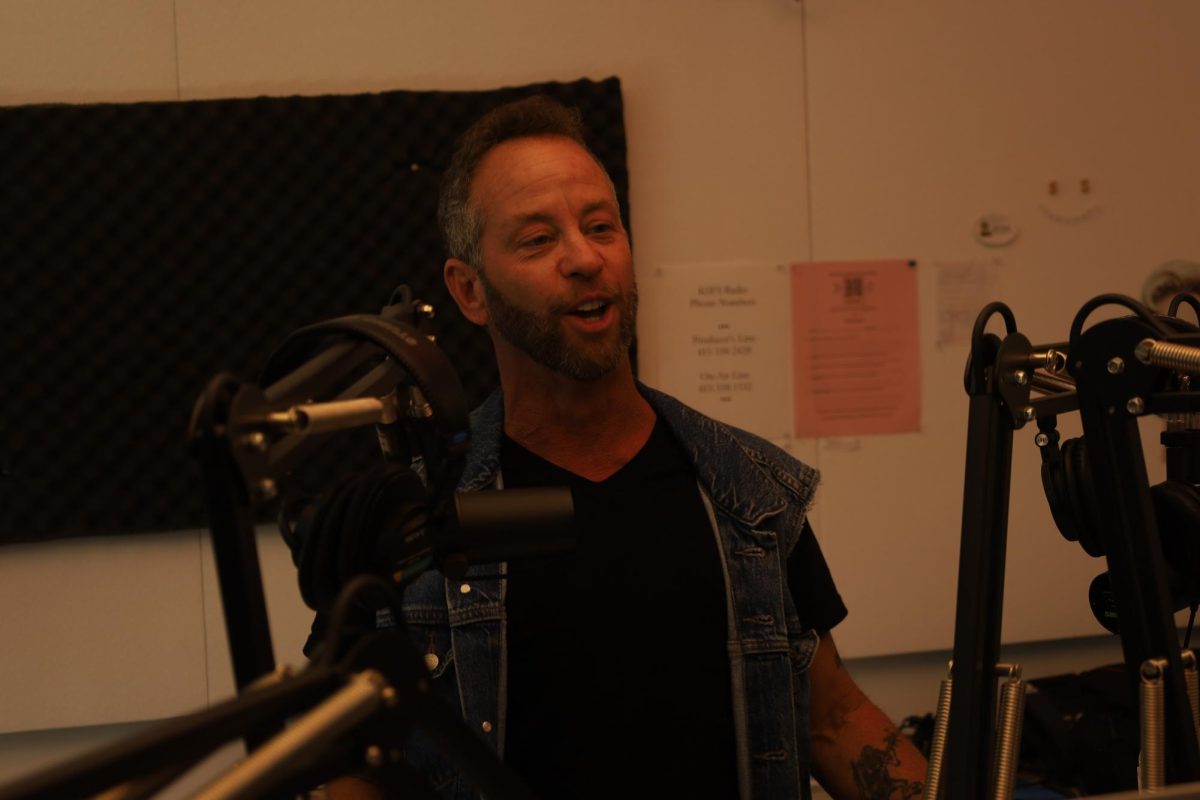Crowds of excited students eagerly waited to pet eager pups brought to campus, in just one of the events organized by the new Health Promotion and Wellness Unit.
“I feel that the therapy dogs are a great option for those who are really stressed out,” senior psychology major Edna Hernandez said. “It has helped me feel less stressed out, but not everyone likes dogs, and they can feel as if it’s not doing anything to help them.”

The unit was created this semester at SF State to improve existing health service programs through cooperation, outreach and educational events, like the Therapy Dogs session Nov. 3 in Malcolm X Plaza, to better suit student’s health needs, according to health educator Vincent Lam. The improved teamwork will help the new unit grow to become a better resource for students, Lam said.
“From a systems level, it’s really beneficial because we’re promoting this culture around health and wellness change,” Lam said. “Having a stand-alone unit to focus on that, versus having it be under the umbrellas of each of the service providers, now we have come together in really creating and developing what this unit is going to look like.”
Although Hernandez said she liked the Therapy Dogs session, she said the event is not enough and suggested options like yoga classes or free massages as a better way to help students unwind. Hernandez also said she believes the unit could do more to help students by providing them an outlet to interact with others who might feel the same way.
The new unit has brought together two separate departments with different missions and directions in order to improve collaboration and make the work more strategic for campus heath, according to health educator Aimée Williams.
The department is funded through a $153-per-semester Student Health Service fee that is collected with tuition, according to officials in charge of the unit.
Students’ lack of awareness regarding health is the main problem that the unit is trying to address, according to Lam.
“A lot of people don’t end up utilizing (health services on campus) unless they need to,” Lam said. “So, I think one of the approaches is empowering students and making sure they know what they’re paying for and (helping them) be able to make informed decisions.”
To better assist students with relevant health issues, the unit has utilized information obtained from the American College Health Association’s National College Health Assessment survey while developing their events, Interim Director Richard Nizzardini said. According to the ACHA-NCHA, the survey is a nationally recognized research survey that assists universities in collecting data about student health habits.
“Finally, San Francisco State got to (participate in the survey) last spring, and the top three health issues that students said affected academic performance were stress, anxiety and lack of sleep,” Nizzardini said. “(With the new unit,) the staff gets to work together, there’s a bigger presence and students really get to address the one thing that they’re saying is most affecting their academic performance.”

New additions to the unit will include many future pop-up events hosted by Peer Educators Advocating Campus Health, health educator Christine Morley said.
“Many of our events (used to be held on) Wednesdays or Thursdays from 10 a.m. to 2 p.m. in the quad, and it (didn’t) reach a whole lot of students,” Morley said.
The unit has implemented PEACH pop-up events around campus, including outside the J. Paul Leonard Library, in the Tri-Community Plaza and in front of Student Health Services in order to reach the entire campus community, Morley said.
“(The events) are interactive to help students change their behavior around wellness and sexual health, also to become more aware,” Morley said. “For example, knowing to get eight hours of sleep a night.”
Sexual education peer educator Lauren Diez said the various pop-up events have different themes, including women’s and men’s health, sexuality, birth control and sexually transmitted infections. The events use games and incentives to make learning about the topics fun for students, Diez said. Some of the incentives are “Sexy Bags” filled with information, resources, condoms and lube to encourage safe sex practices, according to Diez.
“During our first two pop-up events, we were able to reach over 100 students and provide them education and resources on the LGBTQ spectrum and community,” Diez said. “I believe that these events are being well-received by the student body. Students are always excited and intrigued to play the games that we have to offer and win prizes that we provide.”





